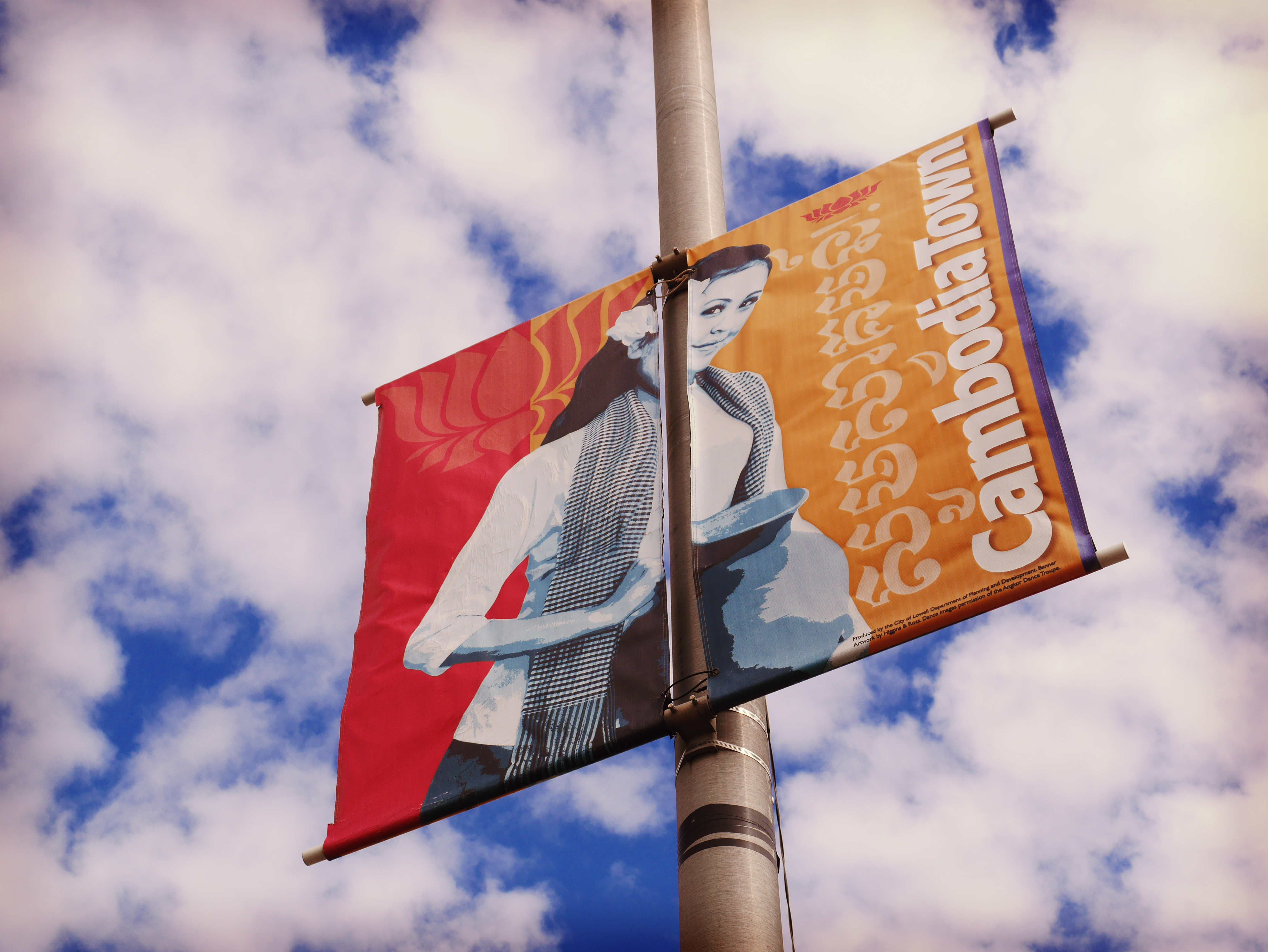Reflections from Lowell
MUSEUM DIARY: October 15-16, 2015
This was my second time visiting Lowell, Massachusetts, home to the second-largest Cambodian community in America – a fact reflected by the designation of “Cambodia Town” within the city.
In Cambodia Town, street lamps have flags welcoming you, and every shop – from restaurant, to laundry mat, to grocer – is written in Khmer and named after a place in Cambodia. Customers converse in Khmer over Phnom Penh noodles and Khmer style coffee.
During our visit, we spent some time with local community leaders learning more about the history of Lowell and Cambodia Town, and sharing our vision for the Cambodia Peace Museum through a community forum hosted by the Cambodian Mutual Assistance Association of Greater Lowell and the Metta Health Centre, part of the Lowell Community Health Centre.
Throughout our two days in Lowell, we saw many examples of how the Cambodian community is celebrating their Khmer heritage while using the lessons and experiences they’ve had as refugees to contribute to the wider community.
Temple & cultural centre
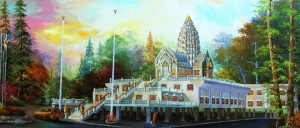
Artists rendition of the planned temple
The Community of Khmer Buddhist Monks (CKBM) have a vision to build a Cambodian-style temple and cultural centre in Lowell as a place for learning about Cambodian culture as well as for Buddhists to worship.
While working towards building their temple, this group has also organised an annual water festival to reflect the water festival in Cambodia, celebrating the victory of Cambodian naval forces in the reign of King Jayvarman VII during the Angkor period of the 12th century. Lowell is one of the only places in America to continue this tradition. The community even had a traditional long boat shipped from Cambodia as part of the annual celebration.
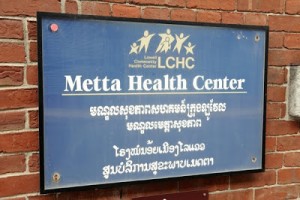 Health provision
Health provision
The Metta Health Centre is a unique example of an East-Meets-West approach to community health.
In the early 2000s, community and outreach workers realised that Cambodians and other Southeast Asian members of the community were not utilising the existing services. Within the Cambodian community, they recognised that this was because so much of the approach was foreign to them – from how appointments are made, to the services available, to the layout of the office.
The Metta Health Centre was established to create a more welcoming and culturally familiar experience for people from Southeast Asia. As time goes by and the refugee groups resettling Lowell are no longer strictly from Southeast Asia, the Metta Centre is continuing to adapt and expand to serve all people.
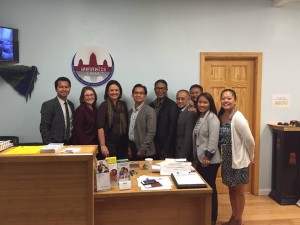
CPCS & CMAA staff, October 2015
Cambodian Mutual Assistance Association
The Cambodian Mutual Assistance Association (CMAA) is lead by a team of dynamic young Cambodian Americans – they call themselves the 1.5 generation, being born in Lowell to parents who arrived as refugees in the 1980s.
The CMAA’s work is largely focused on acting as a bridge between members of the Cambodian community as well as between the Cambodian community and the city, coordinating cultural events such as the annual Apsara dancing showcase.
Community forum
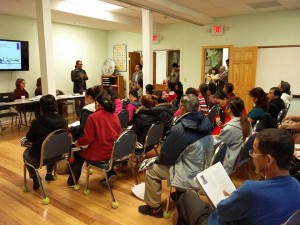 On October 16, the CMAA and Metta Health Centre hosted a community forum for CPCS co-founder and Peace Museum visionary Soth Plai Ngarm, CPCS Executive Director Emma Leslie and myself to share the vision for the Peace Museum and seek feedback and input from the community.
On October 16, the CMAA and Metta Health Centre hosted a community forum for CPCS co-founder and Peace Museum visionary Soth Plai Ngarm, CPCS Executive Director Emma Leslie and myself to share the vision for the Peace Museum and seek feedback and input from the community.
Much of the feedback was linked to stories of Cambodians living in Lowell with the story of Cambodia’s history. Following the discussions, we realised that we have been focused on the resilience of Cambodians living in Cambodia and that there is a space and need to explore and showcase the resilience of Cambodians around the world as well – many of whom have displayed such strength and courage to start life over again in a new, very different space
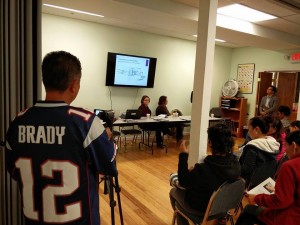 Members of the audience expressed their enthusiasm for the vision, for finally having people come talk to them about all the positive things in Cambodia and not just about the war.
Members of the audience expressed their enthusiasm for the vision, for finally having people come talk to them about all the positive things in Cambodia and not just about the war.
Several members also volunteered to be contacts for the Lowell Cambodian Community and CPCS to explore Lowell residents collecting pictures, letters or other items from resettling that could tell the story of their community and be displayed in the museum.
Next week we continue our Peace Museum events with a performance of The Iliad in New York!
Nikki Singer is the Peace Museum Project Coordinator and writes the Museum Diary

